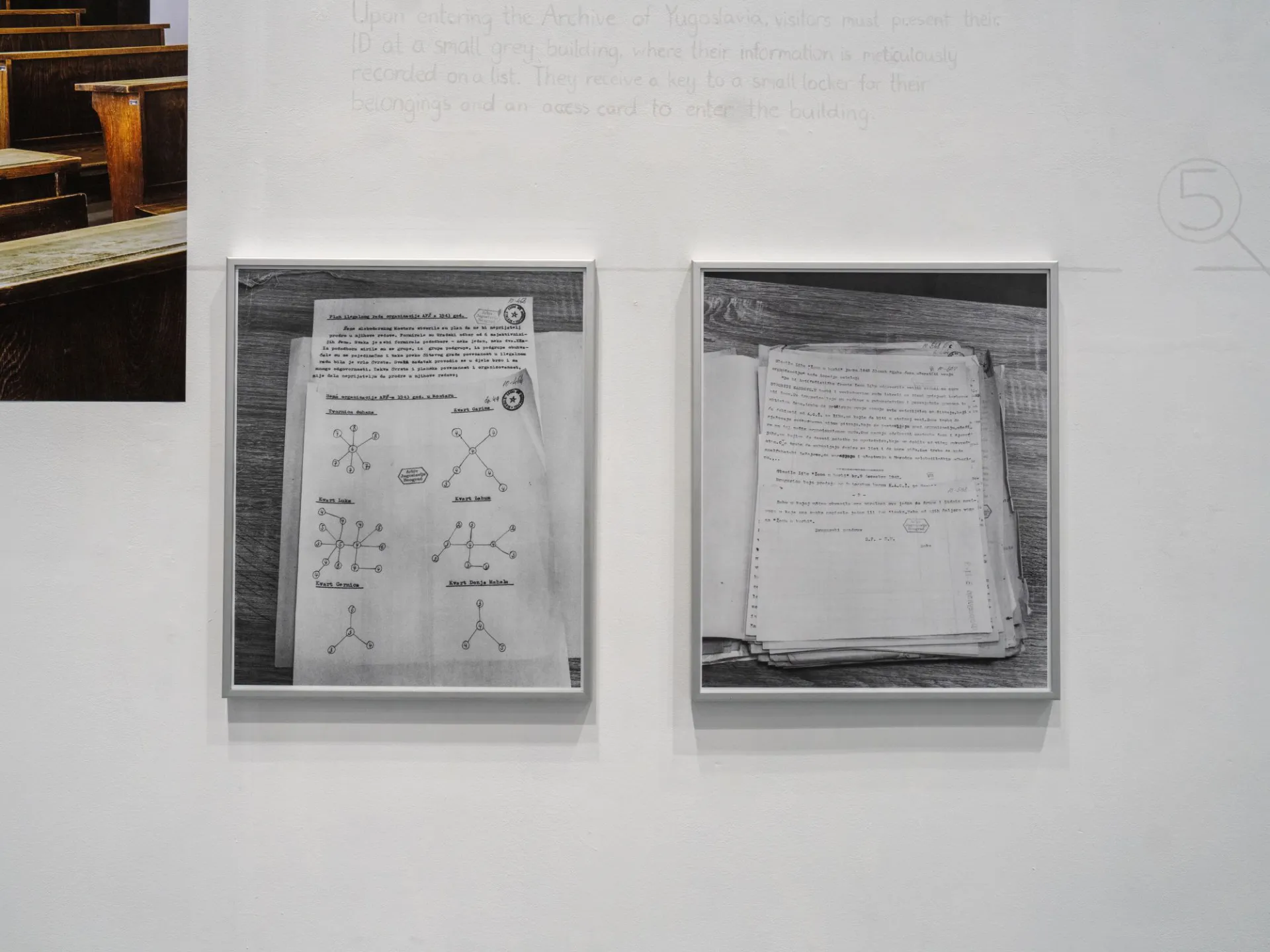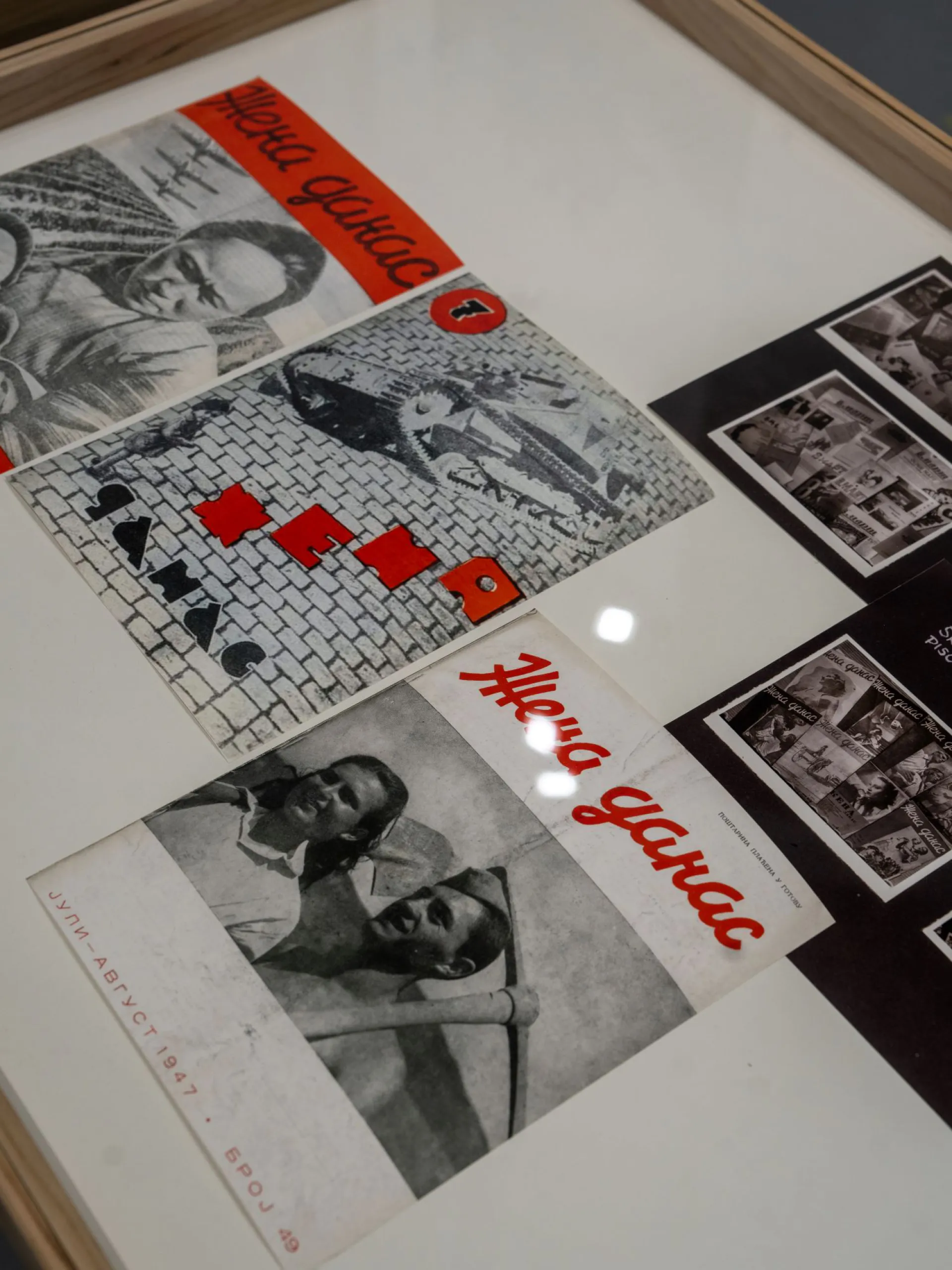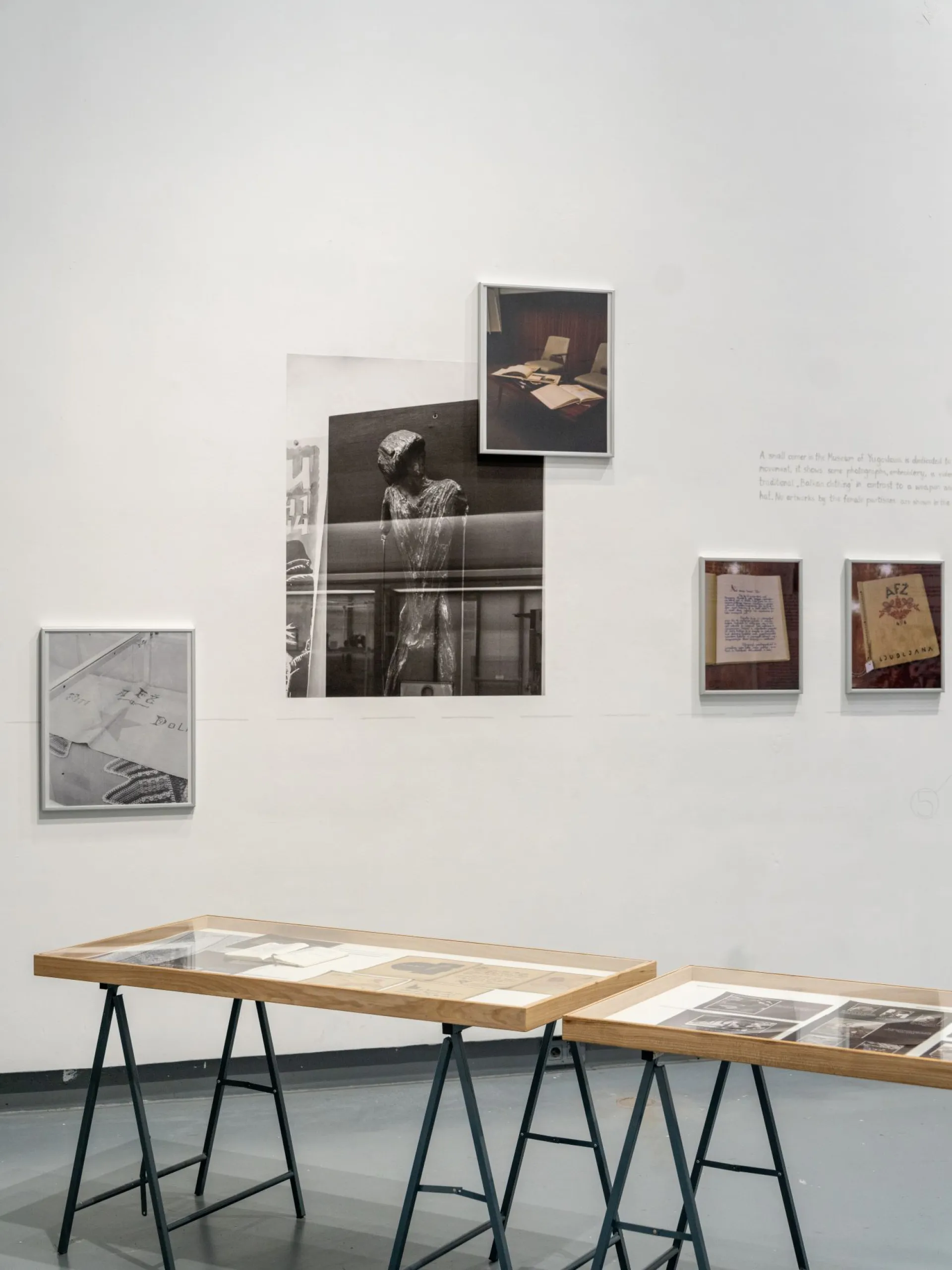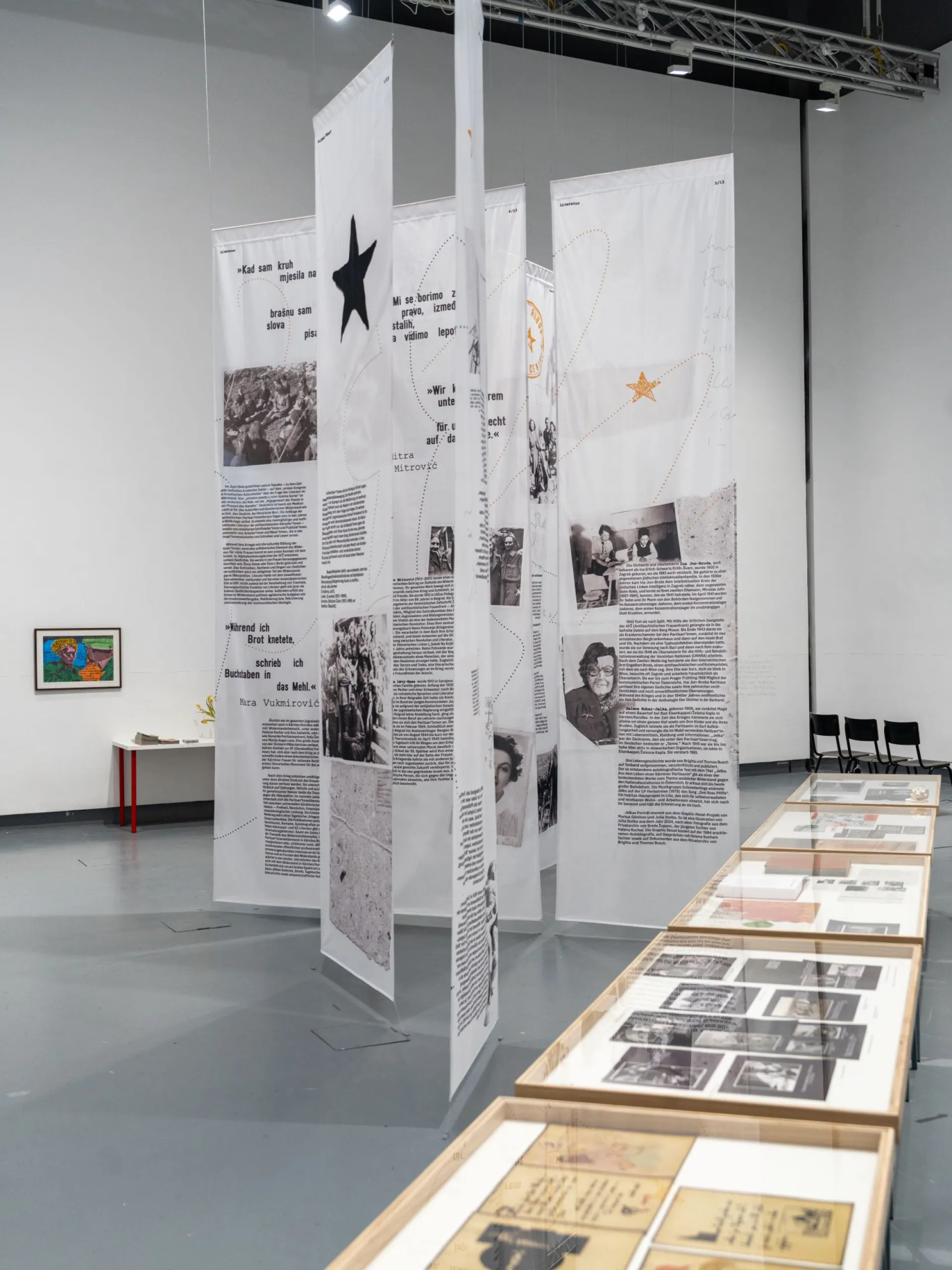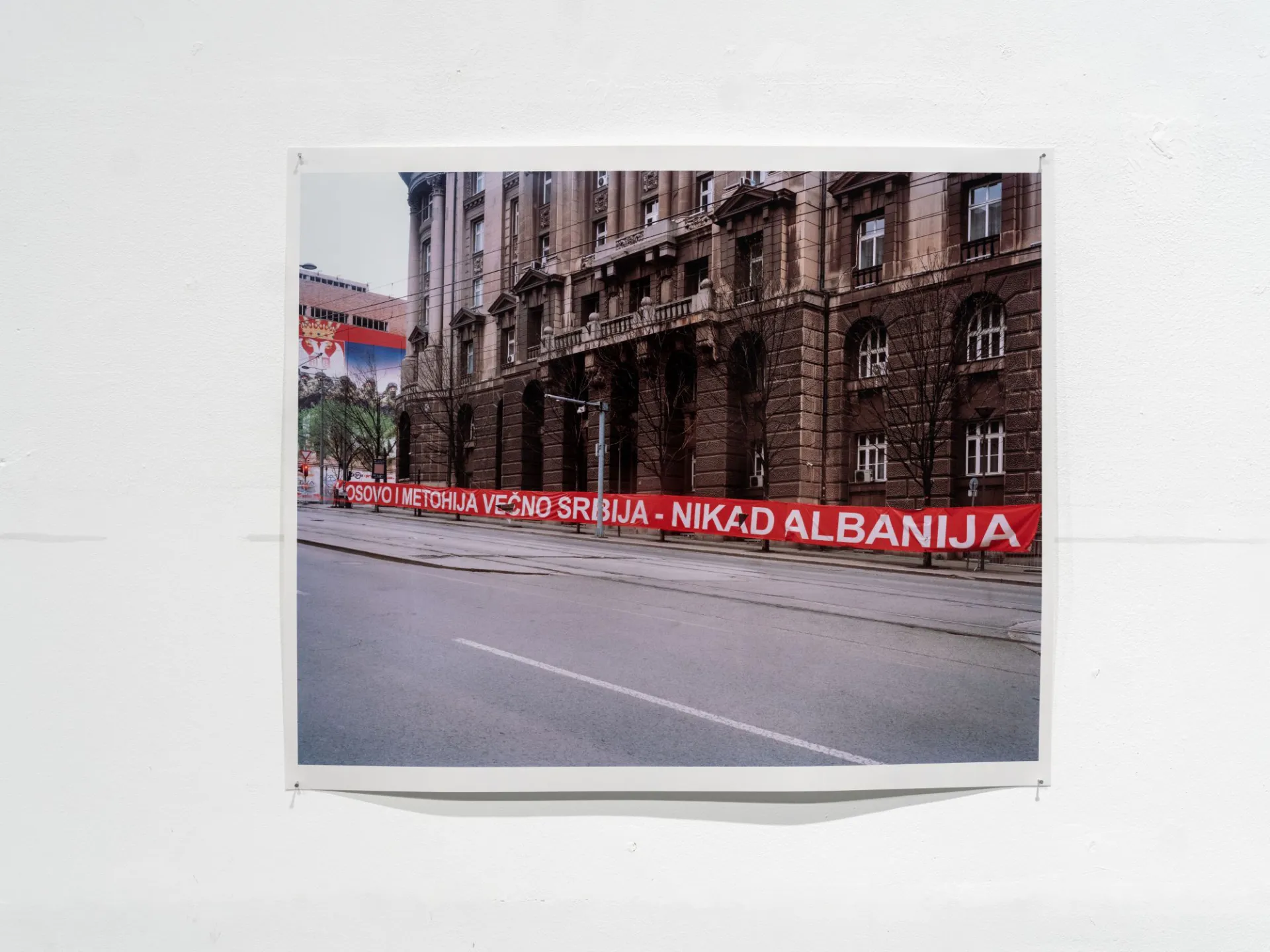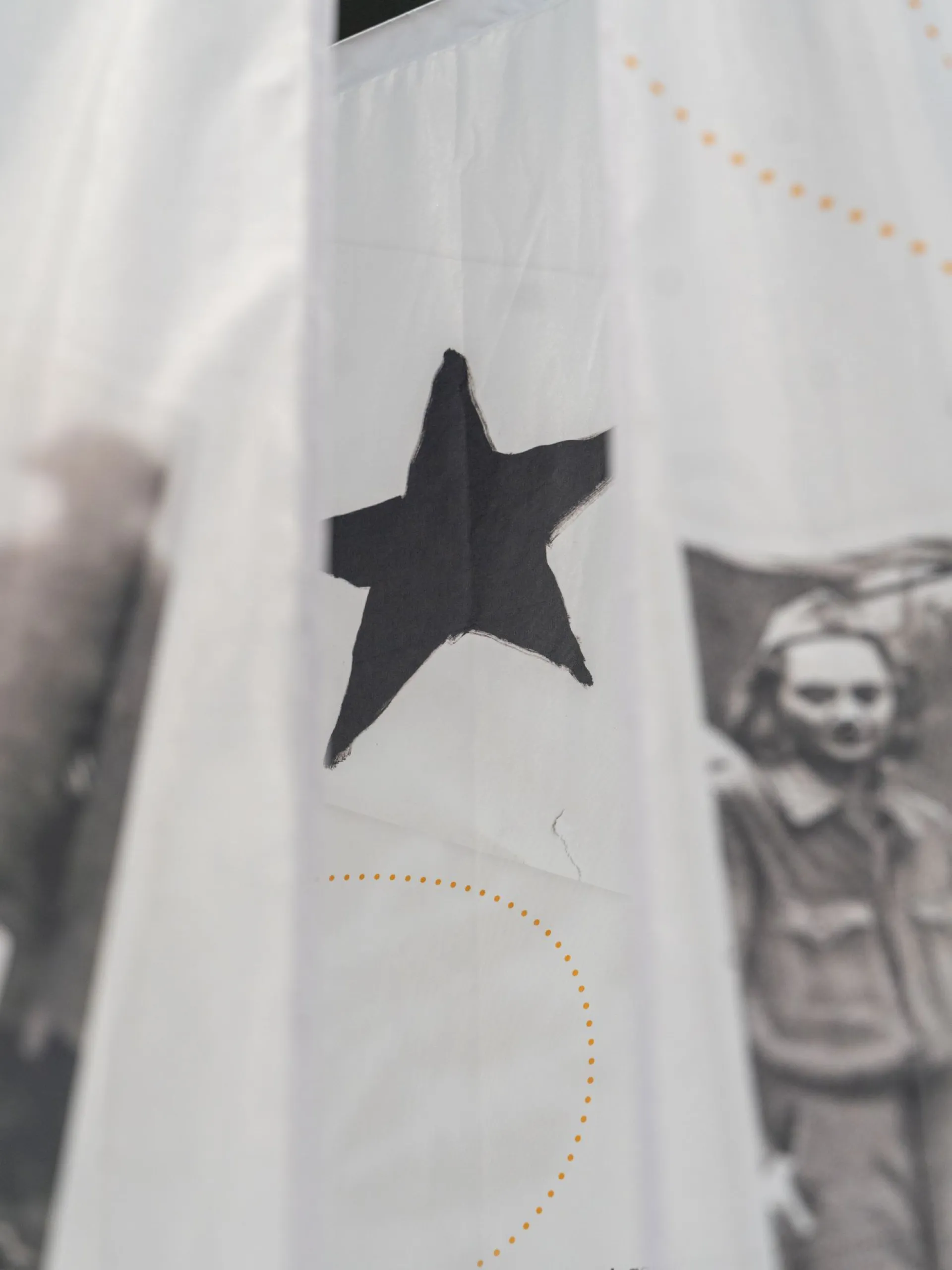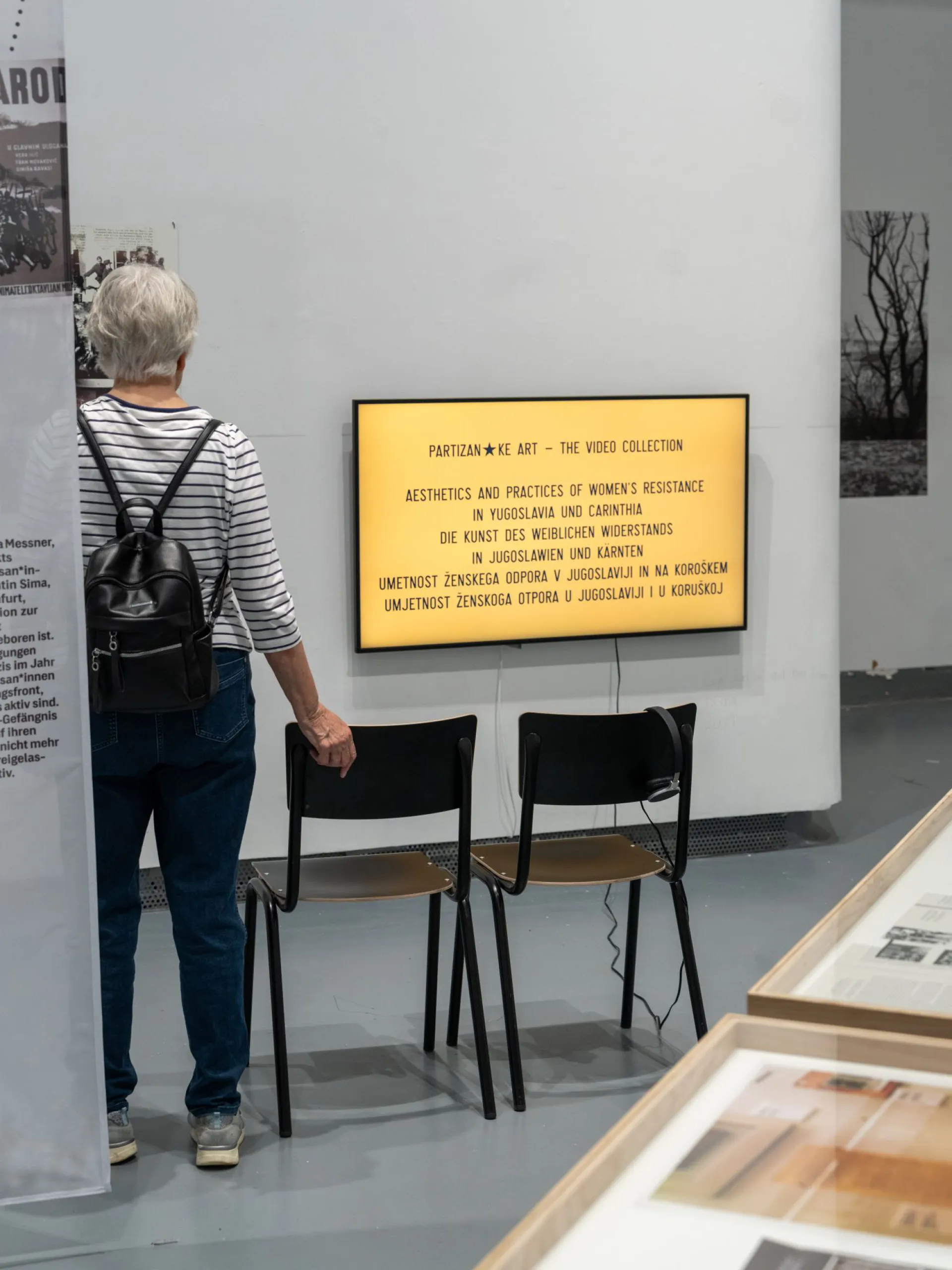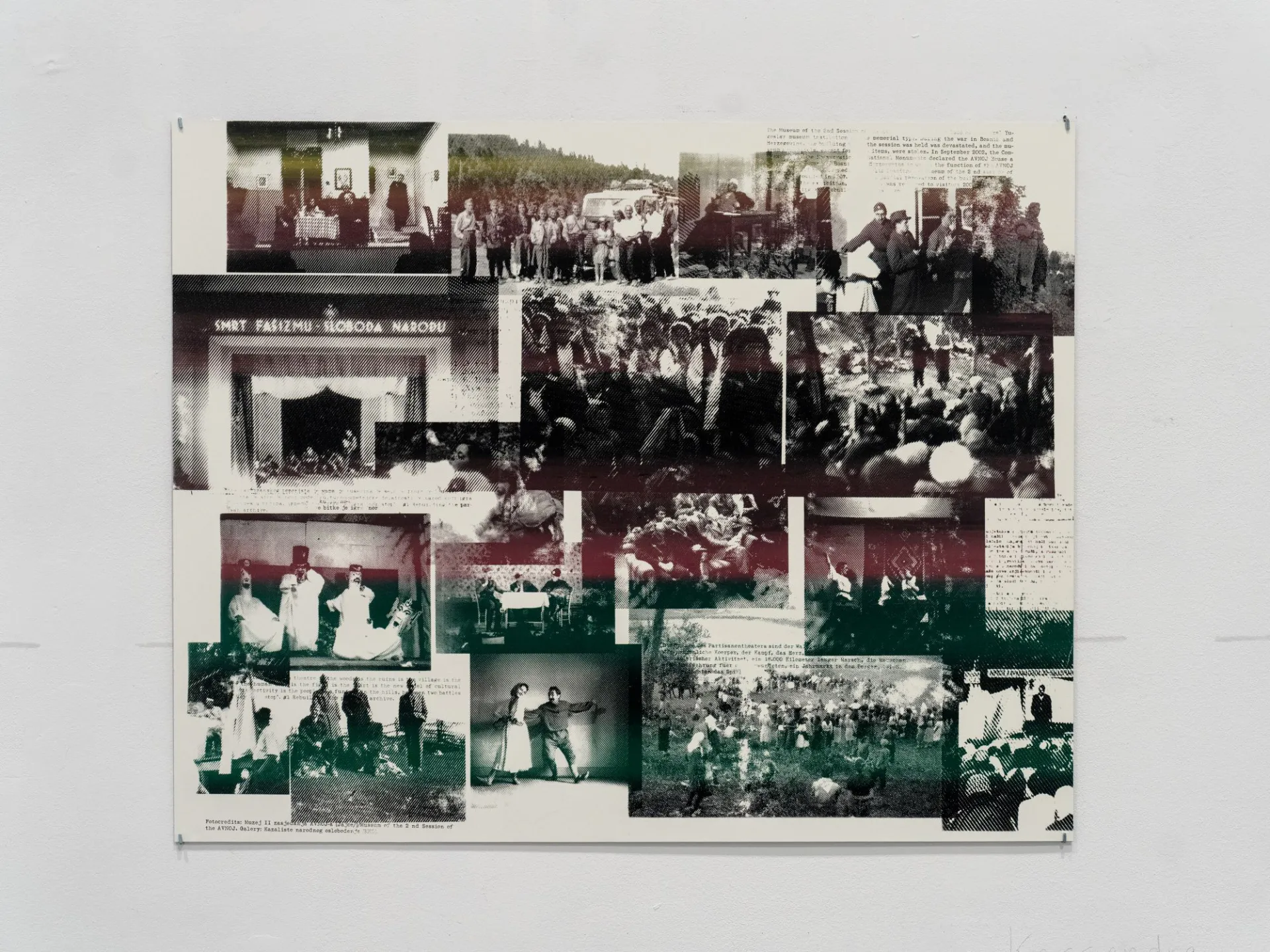Partizan★ke Art (09.04.–17.05.2025)
Die Kunst des weiblichen Widerstands in Jugoslawien und Kärnten
Umetnost ženskega odpora v Jugoslaviji in na Koroškem
Umjetnost ženskoga otpora u Jugoslaviji i u Koruškoj
The resistance of women in the territories of Eastern and South-Eastern Europe occupied by Nazi Germany is hardly a topic in Germany and Austria. This is all the more true of the resistance in Yugoslavia, which has increasingly disappeared from European memory since the collapse of the state. But it was precisely here that there was a nationwide resistance movement that successfully fought against racist and exploitative violence and liberated the country from occupation. An unusually large number of women were involved in this liberation movement, taking part in the struggle both as helpers, with weapons and artistically. This is why the artistic-scientific exhibition Partizanke Art focuses on the female resistance against the German occupation forces and the Axis powers in Yugoslavia and Carinthia/Koroška, which has remained largely invisible to this day.
The term “partisan art” conceals a fascinating phenomenon that is unparalleled in art production: by this we mean art as resistance or culture as a subversive practice of Yugoslav and Carinthian-Slovenian partisans. The protagonists of the resistance were part of the art avant-garde on the one hand, and peasants who expressed themselves in traditional forms of folk art on the other. The subversive culture they created, i.e. literature, visual arts, film, photography, comics, textiles, graphics, theater, dance and monument architecture, will be shown as part of the exhibition Partizanke Art from April 2025 as part of a European history of resistance in the HGB Gallery and flanked by a supporting program (see below).
The gender-theoretical approach makes it possible to highlight the emancipatory content of the resistance and its ambivalences. The art of resistance will be illustrated by focusing on the partisans and artists Mira Aleckovic, Magda Bošan Simin, Greta Cace, Lela Cermak, Vera Crvencanin, Vera Obrenovic Delibašic, Lujo Davico, Cvijeta Job, Ina Jun-Broda, Elvira Kohn, Helena Kuchar, Hanna Levy-Hass, Mitra Mitrovic, Marta Paulin (Brina), Jara Ribnikar, Mira Sanjina, Stella Skopal. The exhibition also focuses on the question of how these subversive art practices were taken up again after the war in contemporary art positions, how they have been continued and further developed - right up to the present day.
The exhibition project sees itself as a contribution to the debate on a reorientation of European remembrance culture, which aims to strengthen diversity in remembrance discourses on the one hand and close existing gaps in perception on the other. The project is therefore set up as a long-term process. A version of the exhibition was shown in January 2025 at the Hochschule für Bildende Künste Hamburg. The exhibition, newly conceived for the gallery of the Academy of Visual Arts Leipzig, will subsequently be shown in Berlin, Munich, Klagenfurt/Celovec and Vienna. Further stops of the exhibition are planned in the former Yugoslavian region.
Supporting program (Download):
09.04. Opening & drinks
24.04. Angelika Waniek & Inga Martel: “aufmerken, sich wieder verbinden”
In cooperation with IDEAL artspace | Performance in the courtyard 5 pm
24.04. Ljubavni slucaj ili tragedija sluzbenice P.T.T.
Film screening 7 pm
25.04. Julia Blume: “Wächterstraße 11 - Eine Zeitschrift des Nationalsozialistischen Studierendenbundes der Akademie für Graphische Künste und Buchgewerbe 1940-1945. Ein Einblick in die Geschichte der HGB Leipzig”
Presentation + talk 6 pm
30.04. Katharina Pressl / Daniel Gönitzer: “Zero points of violence”
Reading + talk 6 pm
08.05. Ko to pamo peva?
Film screening 7 pm
09.05. Oliver Neef: "Forced labor and resistance in Leipzig. Biographies of former forced laborers"
10.05. Museum Night Halle & Leipzig: Exhibition open 18-24 hrs | Guided tours: 19 + 21 hrs
15.05. The Other Line
Film screening 7 pm
Project coordinator: Brigita Malenica und Elena Messner
Curated by: Carla Maruscha Fellenz, Sabina Ferhadbegovic, Cosmo Großbach, Goran Lazicic, Elena Messner, Brigita Malenica, Julia Stolba
Artistic Positions: Fritzi Bosch, Carla Maruscha Fellenz, Cosmo Großbach, Kassandra, Lea Petry, Merlin Rainer (Hochschule für Grafik und Buchkunst Leipzig), Markus Gönitzer (Muzej in spominski kraj pri Peršmanu/Museum und Gedenkstätte Peršmanhof), Zoe Gudovic (Künstlerin und Performerin), Leja Jurišic (Tänzerin, Choreografin, Ljubljana), Bara Kolenc (Philosophische Fakultät Ljubljana), Davor Konjikušic (freier Künstler), Irma Markulin (freie Künstlerin), Julia Stolba (Hochschule für Bildende Kunst Hamburg)
Scientific Video Essay: Stanislava Barac (Institut für Literatur und Kunst, Belgrad), Sabina Ferhadbegovic (Friedrich-Schiller-Universität Jena), Lea Furbach (Universität Kassel), Daniel Gönitzer (Universität Wien), Ana Hoffner (Künstlerin, Kuratorin), Jakob Holzer (Technische Universität Wien), Katja Kobolt (Slowenische Akademie der Wissenschaften und Künste), Goran Lazicic (Universität Graz), Brigita Malenica (Freie Kuratorin), Tijana Matijevic (Institut für Philosophie und Sozialtheorie, Belgrad), Elena Messner (Universität Wien), Aleksandra Momcilovic (Museum Jugoslawiens, Belgrad), Ana Rajkovic Pejic (Kroatisches Institut für Geschichte), Ljubinka Škodric (Institut für Zeitgeschichte, Belgrad), Nora Sternfeld (Hochschule für Bildende Kunst Hamburg), Katarzyna Taczynska (Institut für Slawistik, Polnische Akademie der Wissenschaften), Zlatan Tunjic (Martin-Luther-Universität Halle-Wittenberg), Dubravka Zima (Fakultät für Kroatische Studien, Zagreb)
Text: Sabina Ferhadbegovic, Goran Lazicic, Brigita Malenica, Elena Messner
Graphic Design: Fritzi Bosch, Carla Maruscha Fellenz
Video Production: Elena Messner, Julia Stolba
Scientific support: Ana Adamovic (Akademie der Bildenden Künste, Wien), Cristina Beretta (Alpen-Adria Universität Klagenfurt/Celovec), Hana Curak (Institut für Europäische Ethnologie, Berlin), Gal Kirn (Philosophische Fakultät der Universität Ljubljana), Jelena Petrovic (Central European University, Wien), Tatjana Rosic Ilic (Fakultät für Medien und Kommunikation, Belgrad)
Partners:
Hochschule für Grafik und Buchkunst / Academy of Fine Arts Leipzig
HFBK / wartenau arteducation, der Universität Wien
Institut für Slawistik der Alpen-Adria Universität Klagenfurt/Celovec
FWF – Der Österreichische Wissenschaftsfonds
WerkStattmuseum/delavnicaMuzej
kärnten.museum
Društvo/Verein Peršman
In cooperation with Elena Messners Scientific Project“(Post-)Yugoslav feminist periodicals and their global cultural and literary context, University of Vienna (FWF)”

